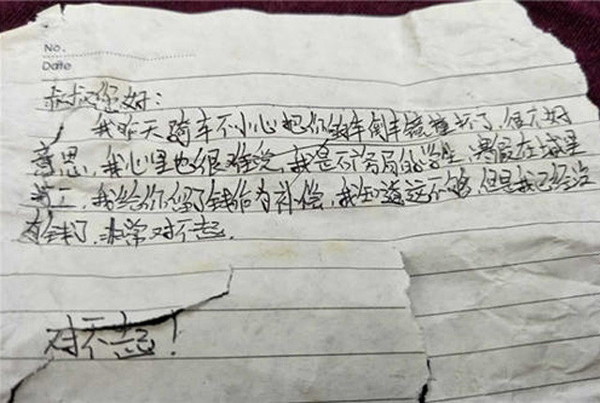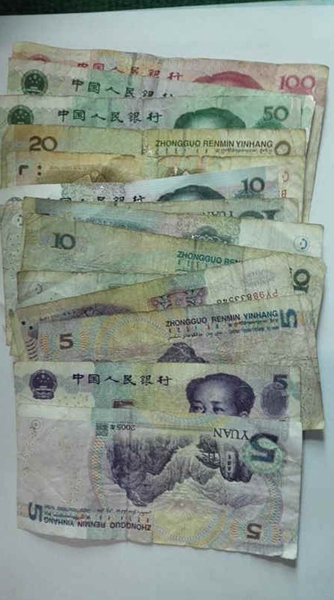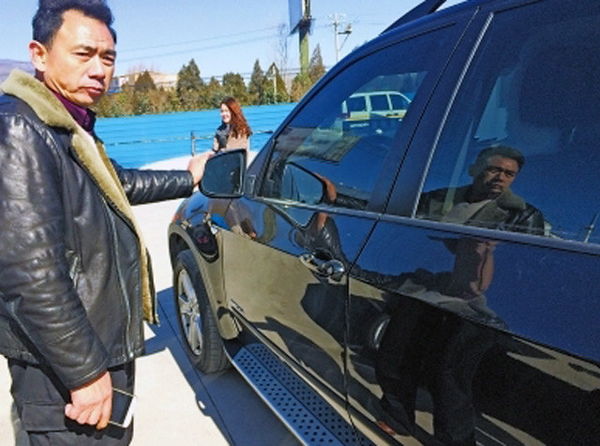Honest boy who admits damaging car rewarded by owner
|
|
|
Chen Yifan [Photo: dahe.cn] |
A student left an apology letter and 311 yuan (US$45) to the owner of a car that the boy hit accidentally with his electric scooter. The owner of the car, who was not there when his car was damaged, was so impressed by the student’s honesty that he has donated 10,000 yuan to go toward that student’s future tuition, reported dahe.com on Sunday.
|
|
|
The apology letter left by Chen Yifan [Photo: dahe.cn] |
Teenager Chen Yifan is a student from Xinmi city, Henan province. At the beginning of February, he accidentally hit a BMW car while he was riding an electric scooter.
|
|
|
The money left by Chen Yifan as compensation for damaging the car [Photo: dahe.cn] |
Chen’s letter to the driver contained an apology for the damage done to the car, and explained that the money he was leaving was all that he had, as he was a student and his only income was from a part-time job.
|
|
| The car owner and the car that was damaged by the electric scooter [Photo: dahe.cn] |
After finding the apology letter, Xue Zhanmin, the car’s owner, said he found no need to blame the boy for the accident. “The boy is honest and kind as he took the responsibility and made the compensation. We should praise such behavior,” said Xue.
Xue Zhanmin contacted the boy’s family with the help of local police on February 11. He gave the money back to the boy and offered to financially help the boy finish his studies. The boy’s mother learned of the incident and offered to make the full compensation, which was 13,000 yuan but this was refused by Xue.
On Sunday, Xue sent 10,000 yuan as a donation to cover the boy’s tuition fees. Chen Yifan expressed gratitude but refused the money. After persuasion from the local police and staff members, Chen’s family finally accepted this donation that is full of love and care.



